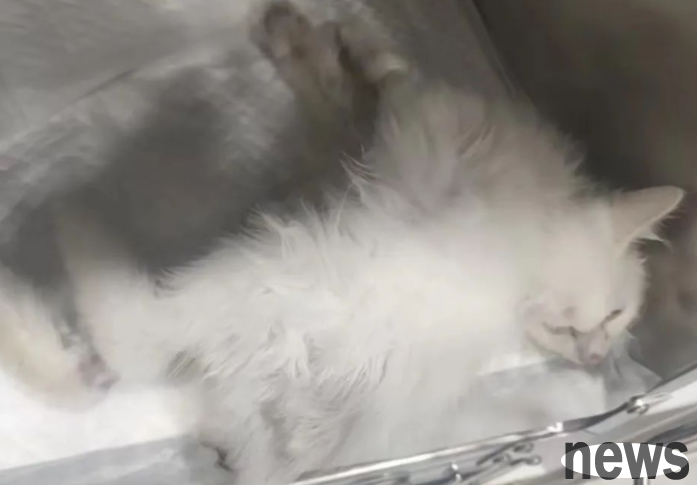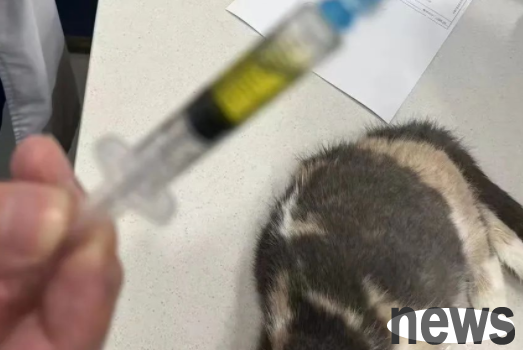Fatus detection method for FCoV in cat abdominal FIP blood: nucleic acid detection technology RT-PCR (including real-time RT-PCR and RT-nPCR). The sensitivity is 9~77%, and the specificity is 88~100%, which is not unique to FIP; FCoV viremia can als...
Fatus detection method for FCoV in cat abdominal FIP
blood:
nucleic acid detection technology RT-PCR (including real-time RT-PCR and RT-nPCR). The sensitivity is 9~77%, and the specificity is 88~100%, which is not unique to FIP; FCoV viremia can also be detected in cats with RT-PCR cats, and the viral load is usually very low in cats with FIP virus. Real-time RT-PCR of
M gene, with 46~100% sensitivity and 48~100% specificity, is not unique to FIP; FCoV mRNA can also be detected in cats without FIP.
s gene RT-PCR, sensitivity 0~23%, specificity 95%, may give false positive results; in cats with FIP disease, the viral load is usually very low. The sequencing of
S gene mutations, with a sensitivity of 7~43%, and specificity without data, is more useful than S gene RT-PCR. Whether the controversial S gene mutation is unique to FIP or is only a marker of systemic transmission of FCoV.
antibody detection, including ELISA, has a sensitivity of 28~85% and a specificity of 25~92%, which is not unique to FIP; anti-FCoV antibodies can also be detected in cats without FIP.

Exudate:
FCoV antigens were detected by IFA or ICC, with a sensitivity of 57~100% and a specificity of 71~100%. If a consistent conventional diagnostic test is positive – FIP is likely not, cats with FIP may have false positive results.
RT-PCR (including real-time RT-PCR and RT-nPCR), with 72-100% sensitivity, 83-100% specificity, and is not specific to FIP; FCoV RNA can also be detected in cats without FIP.
S gene RT-PCR, with a sensitivity of 64~69% and a specificity of 86~96%, which is more useful than S gene RT-PCR. Whether S gene mutations are specific for FIP is controversial or are only a marker of systemic transmission of FCoV.
antibody detection, 86% sensitivity, 85% specificity, and is not specific to FIP; anti-FCoV antibodies can also be detected in cats without FIP.
CSF:
ICC detects FCoV antigens with a sensitivity of 78~91% and a specificity of 50~88%. If combined with a consistent conventional diagnostic test, it is very likely that cats without FIP may have false positive results. RT-PCR (including real-time RT-PCR and RT-nPCR)
RT-PCR (including real-time RT-PCR and RT-nPCR) has a sensitivity of 17~86%, 100% specificity, and is not specific to FIP; cats with neurological symptoms of FCoV RNA can also be detected in cats without FIP.
S gene RT-PCR, sensitivity is 8~44%, specificity is 95%, and false positive results can be given; it is not helpful for confirming the diagnosis of FIP.
antibody detection, sensitivity is 0~94%, specificity is 93~100%, and is not specific to FIP; cats without FIP can also detect anti-FCoV antibodies, and cats with neurological symptoms are more sensitive than cats without neurological symptoms.

Aquaculture:
ICC detects FCoV antigens with a sensitivity of 64% and a specificity of 82%, if bound to a consistent conventional diagnostic test, it is likely that cats without FIP may have false positive results.
RT-PCR (including real-time RT-PCR and RT-nPCR), with 25-50% sensitivity, 100% specificity, and is not specific to FIP; FCoV RNA can also be detected in cats without FIP.
S gene RT-PCR, sensitivity 10~13%, sensitivity 100%, false positive results can be given; it is not helpful for confirming the diagnosis of FIP.
Type:
FCoV antigen detection through IHC, sensitivity 98%, specificity 100%, the gold standard for FIP diagnosis.
ICC detects FCoV antigens in FNA specimens, sensitivity: 17~31% (hepatic), 11~20% (renal), 53% (mesenteric lymph nodes), specificity 91% (mesenteric lymph nodes), if combined with a consistent routine diagnostic test positive – FIP is likely, cats without FIP may have false positive results.
RT-PCR (including real-time RT-PCR and RT-n PCR; FNA or biopsy specimens), sensitivity 65~100%, specificity 50~96%, not specific to FIP; FCoV RNA sensitivity can also be detected in cats without FIP.
S gene RT-PCR, sensitivity of 15~71%, 67~100%, can give false positive results; it is not helpful for confirming the diagnosis of FIP.
S gene mutation sequence, with 70~89% sensitivity and 88~100% specificity, which is more useful than S gene RT-PCR. Whether S gene mutations are specific to FIP is controversial or are only a marker of systemic transmission of FCoV.